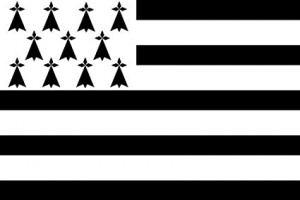Difference between revisions of "Language/Breton/Grammar/Conditional-Mood"
m (Quick edit) |
m (Quick edit) |
||
| Line 46: | Line 46: | ||
We have now explored the conditional mood in Breton. We have seen how it is formed with regular and irregular endings, and we have looked at some examples of it in action. With this knowledge, you should now be able to use the conditional mood correctly in your own Breton conversations. | We have now explored the conditional mood in Breton. We have seen how it is formed with regular and irregular endings, and we have looked at some examples of it in action. With this knowledge, you should now be able to use the conditional mood correctly in your own Breton conversations. | ||
<br><hr>If you have any questions, please ask them in the comments section below.<br>Feel free to edit this wiki page if you think it can be improved. 😎 | <br><hr>If you have any questions, please ask them in the comments section below.<br>Feel free to edit this wiki page if you think it can be improved. 😎 | ||
==Related Lessons== | |||
* [[Language/Breton/Grammar/Adjectives|Adjectives]] | |||
* [[Language/Breton/Grammar/Plurals|Plurals]] | |||
* [[Language/Breton/Grammar/Pronouns|Pronouns]] | |||
* [[Language/Breton/Grammar/Negation|Negation]] | |||
* [[Language/Breton/Grammar/Questions|Questions]] | |||
* [[Language/Breton/Grammar/Personal-Pronouns|Personal Pronouns]] | |||
* [[Language/Breton/Grammar/Future-Tense|Future Tense]] | |||
{{Breton-Page-Bottom}} | {{Breton-Page-Bottom}} | ||
Revision as of 22:57, 25 February 2023
Hi Breton learners! 😊
In today's lesson, we will be exploring the conditional mood in Breton. This is an important part of the language and understanding it will help you to communicate more effectively.
Overview
The conditional mood is used to express a hypothetical situation or a wish. It is formed by adding the appropriate ending to the verb stem. In Breton, there are two types of conditional endings: the regular endings and the irregular endings.
Regular Endings
The regular endings are used for most verbs. They are as follows:
- -fe for first person singular (I)
- -fes for second person singular (you)
- -fe for third person singular (he/she/it)
- -fent for first person plural (we)
- -fec'h for second person plural (you)
- -fent for third person plural (they)
For example, the verb "komz" (to speak) would become "komzfe" (I would speak), "komzfes" (you would speak), "komzfe" (he/she/it would speak), "komzfent" (we would speak), "komzfec'h" (you would speak), and "komzfent" (they would speak).
Irregular Endings
The irregular endings are used for some verbs. They are as follows:
- -fen for first person singular (I)
- -fes for second person singular (you)
- -fe for third person singular (he/she/it)
- -fen for first person plural (we)
- -fec'h for second person plural (you)
- -fen for third person plural (they)
For example, the verb "kaout" (to have) would become "kaoutfen" (I would have), "kaoutfes" (you would have), "kaoutfe" (he/she/it would have), "kaoutfen" (we would have), "kaoutfec'h" (you would have), and "kaoutfen" (they would have).
Examples
Let's look at some examples of the conditional mood in action.
- If I had more time, I would learn Breton. (M'en divije muioc'h a amzer, e vefen o klask deskiñ brezhoneg.)
- If you had asked me, I would have helped you. (Ma vijes bet goulennet diganin, e vefen bet sikouret ac'hanout.)
- If he had known the answer, he would have told us. (Ma vije bet gouzout ar respont, e vefe bet lavaret deomp.)
- If we had more money, we would travel more. (Ma vijemp bet muioc'h a arc'hant, e vefemp bet o tremen muioc'h a amzer o c'hwezhañ.)
- If you had been there, you would have seen it. (Ma vijes bet eno, e vefes bet gwelet anezhañ.)
- If they had listened, they would have understood. (Ma vijent bet o selaou, e vefent bet o kompren.)
Conclusion
We have now explored the conditional mood in Breton. We have seen how it is formed with regular and irregular endings, and we have looked at some examples of it in action. With this knowledge, you should now be able to use the conditional mood correctly in your own Breton conversations.
If you have any questions, please ask them in the comments section below.
Feel free to edit this wiki page if you think it can be improved. 😎
Related Lessons
